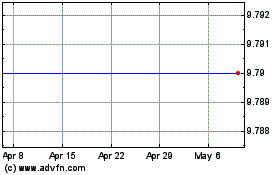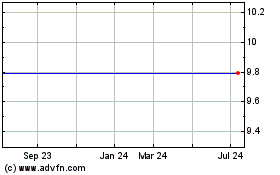Agreement provides for continued development of
a liquid biopsy test designed to aid physicians in the early,
non-invasive detection of lung cancer
The Wistar Institute and BioTime, Inc. (NYSE MKT: BTX) announced
that Wistar and BioTime’s subsidiary OncoCyte Corporation, have
expanded their collaborative relationship to develop a simple,
non-invasive, blood-based test designed to aid physicians in the
early detection of lung cancer. This expanded collaboration follows
earlier clinical trials, the interim results of which were
presented at the May 2015 American Thoracic Society (ATS)
International Conference. Wistar is an international biomedical
research leader in cancer, immunology and infectious diseases.
OncoCyte is a developer of novel, non-invasive liquid biopsy
products for the early detection of cancer.
In October 2013, OncoCyte entered into a Sponsored Research
Agreement with The Wistar Institute, a National Cancer
Institute-designated cancer center, to develop and test potential
lung cancer biomarkers identified by Dr. Louise Showe, Ph.D.,
professor in Wistar’s Molecular and Cellular Oncogenesis Program.
Under the new expanded agreement, OncoCyte and Wistar will continue
their collaboration with the goal of developing a highly sensitive
and specific diagnostic test for the early detection of lung
cancer. Critical to the success of the next phase of the research
and development program will be the analysis of an expanded patient
sample set, the transition of sample analysis to a platform capable
of commercial scale operations, confirmation of mRNA and miRNA
expression, and completion of diagnostic test verification
activities.
“I look forward to continuing this productive relationship
between my lab at Wistar and our collaborators at OncoCyte,” said
Dr. Showe, professor, Wistar’s Molecular and Cellular Oncogenesis
Program; associate director, Center for Systems and Computational
Biology; scientific director, Genomics Facility; and scientific
director, Bioinformatics Facility. “Lung cancer takes a terrible
toll on life and productivity every year. We hope we can impact
that toll in some meaningful way, through the ongoing studies.”
“We look forward to building on the initial success of our
partnership with The Wistar Institute, and are excited about our
progress to date,” said William Annett, Chief Executive Officer of
OncoCyte. “As we continue to develop our liquid biopsy for the
early detection of lung cancer, we are enthusiastic about the
opportunity to have a major impact on the lives of those that
suffer from lung cancer.”
Interim Results from Initial Agreement
In May 2015, OncoCyte and The Wistar Institute announced the
interim results of a large, clinical study conducted by Dr. Showe
and funded by OncoCyte. The clinical interim results from a
blood-based diagnostic test for non-invasive detection of lung
cancer were presented at the American Thoracic Society (ATS)
International Conference. These results from the assayed samples
demonstrated a high level of observed sensitivity and specificity
of a simple blood-based test designed to aid physicians in the
early detection of lung cancer. Performance of the classifier was
evaluated using several criteria, including Receiver Operating
Characteristic (ROC) area under the curve (AUC) analysis, and
yielded an AUC of 0.88 (sensitivity of 76% with a specificity of
88%) in the test set.
Dependent on achieving successful scientific and technical
results at this stage of development, OncoCyte and Wistar will
proceed to final validation of the test with the goal of completing
that work in 2016 to enable OncoCyte to commercially launch the
lung diagnostic test.
OncoCyte has exercised options to obtain exclusive licenses to
any inventions, discoveries or technology developed in the course
of the collaborative research and expects to finalize definitive
license agreements with Wistar in the near future.
Lung cancer remains a primary cause of cancer-related death in
part because there is no effective diagnostic test to screen
patients for lung cancer at an early stage. Annual screening for
lung cancer in certain high-risk patients was recently recommended
by the United States Preventive Services Task Force (USPSTF), an
independent panel of experts in primary care and prevention that
systematically reviews the evidence of effectiveness and develops
recommendations for clinical preventive services. The Task Force
recommended screening using low-dose computed tomography (CT)
scans. Although low-dose CT scans have demonstrated high
sensitivity in detecting early-stage lung cancer in large clinical
studies, it also has a relatively high false-positive rate of
approximately 25%. False positives can lead to unnecessary costs
and side effects due to the need for highly-invasive diagnostic
procedures such as bronchoscopies and lung biopsies.
Large-scale screening of patients at high risk for lung cancer,
an estimated seven to ten million patients per year in the U.S.,
could reduce overall lung cancer mortality through earlier
detection. However, the high number of false-positive low-dose CT
tests could lead to significant unnecessary costs to the U.S.
health care system as a result of associated follow-up testing.
Physicians, payers, and patients may therefore welcome a simple to
use, low-cost, blood-based test that can help guide
patient-management decisions by noninvasively ruling out the
presence of cancer.
About OncoCyte Corporation
OncoCyte is focused on the development of novel, non-invasive
liquid biopsy products for the early detection of cancer.
The company believes that early detection of cancer will improve
the quality and length of life of cancer patients. While current
diagnostic tests use invasive surgical procedures to provide tissue
samples in order to determine if a tumor is benign or malignant,
next generation diagnostic tests will be liquid biopsies using
blood or urine samples.
Based on their large market sizes and high unmet medical needs,
OncoCyte is initially focusing its efforts on developing liquid
biopsy products for detecting lung, bladder and breast cancer.
Clinical studies are underway in all three products. OncoCyte’s
products are based on a proprietary set of cancer markers
characterized, in part, by broad gene expression patterns in
numerous cancer types.
OncoCyte is a partially owned subsidiary of BioTime, Inc., a
pioneer in regenerative medicine and a clinical-stage biotechnology
company. BioTime and its subsidiaries are leveraging their
industry-leading experience in pluripotent stem cell technology and
a broad intellectual property portfolio to facilitate the
development and use of cell-based therapies and gene marker-based
molecular diagnostics for major diseases and degenerative
conditions for which there presently are no cures.
BioTime common stock is traded on the NYSE MKT under the symbol
BTX. For more information, please visit www.biotimeinc.com or
connect with the company on Twitter, LinkedIn, Facebook, YouTube,
and Google+.
About The Wistar Institute
The Wistar Institute is an international leader in biomedical
research with special expertise in cancer research and vaccine
development. Founded in 1892 as the first independent nonprofit
biomedical research institute in the country, Wistar has long held
the prestigious Cancer Center designation from the National Cancer
Institute. The Institute works proactively to ensure that research
advances move from the laboratory to the clinic as quickly as
possible. Wistar’s business development team is dedicated to
advancing Wistar Science and Technology Development through
creative partnerships. Wistar Science Saves Lives. On the Web at
www.wistar.org.
FORWARD-LOOKING STATEMENTS
Statements pertaining to future financial and/or operating
results, future growth in research, technology, clinical
development, and potential opportunities for BioTime and its
subsidiaries, along with other statements about the future
expectations, beliefs, goals, plans, or prospects expressed by
management constitute forward-looking statements. Any statements
that are not historical fact (including, but not limited to
statements that contain words such as “will,” “believes,” “plans,”
“anticipates,” “expects,” “estimates”) should also be considered to
be forward-looking statements. Forward-looking statements involve
risks and uncertainties, including, without limitation, risks
inherent in the development and/or commercialization of potential
products, uncertainty in the results of clinical trials or
regulatory approvals, need and ability to obtain future capital,
and maintenance of intellectual property rights. Actual results may
differ materially from the results anticipated in these
forward-looking statements and as such should be evaluated together
with the many uncertainties that affect the business of BioTime and
its subsidiaries, particularly those mentioned in the cautionary
statements found in BioTime's Securities and Exchange Commission
filings. BioTime disclaims any intent or obligation to update these
forward-looking statements.
To receive ongoing BioTime corporate communications, please
click on the following link to join our email alert list:
http://news.biotimeinc.com.
View source
version on businesswire.com: http://www.businesswire.com/news/home/20150818005569/en/
OncoCyte CorporationDan Lawrence, 510-521-3390, ext
349dlawrence@biotimemail.comorInvestor Contact:EVC Group,
Inc.Michael Polyviou, 212-850-6020mpolyviou@evcgroup.comorMedia Contact:Gotham
Communications, LLCBill Douglass,
646-504-0890bill@gothamcomm.com
Brooklyn ImmunoTherapeut... (AMEX:BTX)
Historical Stock Chart
From Aug 2024 to Sep 2024

Brooklyn ImmunoTherapeut... (AMEX:BTX)
Historical Stock Chart
From Sep 2023 to Sep 2024
